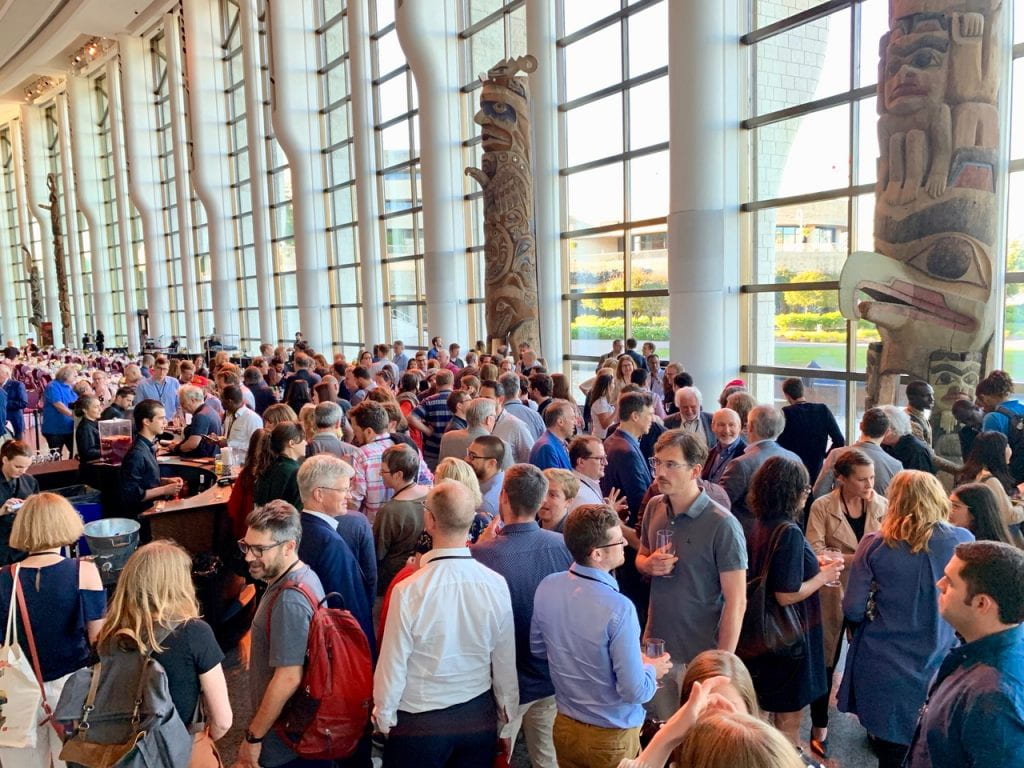Academic Conferences in Crisis Mode – a verdict
By Andreas P Kopp, on 12 June 2020
What works and what doesn’t when conferencing online
Academic conferences are among the most important events for researchers. It is the place where you get to present results and receives feedback, where you can put your own name out there and show your face to the academic world, and where you get to network, meet heroes and heroines, academic crushes, and friends from across the globe. Conferencing is one of the perks of academic life – especially for early career researchers and PhD students, who rely on the networks gained at conferences for knowledge sharing and continued learning, for future collaborations, and above all, for the academic job hunt.
Three out of four conferences I planned to attend in 2020 are now over – one has been cancelled, two were transferred to online conferences. In addition, various workshops I meant to attend in person also ‘went digital’. It is time for some reflections and a verdict about academic conferencing during the current global crisis, the COVID-19 pandemic. These are my personal reflections, and your experience might be different. I think, however, that I capture some general aspects that might have been observed by many colleagues out there.
First of all, kudos to the many organisers who in most cases had very little time to change entire conferences to online layouts – it must have been stressful. Yet, it worked just fine most of the time. All the participants usually understand that these are different, challenging times, so nobody takes any hiccups seriously but instead remains patient and calm.
The Pros
The actual technology used for an online conference matters less. I tried over ten different software solutions, among others (and I list in alphabetical order) Blackboard, FaceTime, Google Hangout, GoToMeeting, Jitsi, Microsoft Teams, Miro, Skype, Webex, WhatsApp, and Zoom. I am aware that some people fuss about the actual programme, but I find that all of them have their pros and cons, and it really depends on what you use them for. By now, all of us are familiar with the majority of these programmes, so it is ok to just choose one and go with that.
Feedback is better in and during online conferences than in real-world events. People actually read the papers that were uploaded, have concrete questions, and provide concise, written comments, for example via email or the chat function of the software. This is more helpful than a quick comment after an in-person presentation. Moreover, I find that participants think more carefully about how to phrase a question or comment, especially suggestions for improvement, when they have to write them down. Sometimes, ‘things’ are said very easily, but once you have to write it down, it becomes much more constructive and supportive. Both of these aspects are particularly helpful for early career researchers, who need this feedback for papers, the PhD, or to draft ideas for future projects.
Novel formats and creative ideas enrich the portfolio of academic conferences and make them more interesting and lively, such as digital poster sessions, recorded presentations, small breakout rooms, or virtual whiteboards. Many also allow more time and space for attendees to soak up the content, which increases the amount of reflective and constructive feedback to presenters.
Digital conferences are more sustainable and logistics are easier. No travel, no flying around the world, no hotel bookings, no early morning trips on public transport. Lengthy and packed conference days are replaced with shorter online sessions, which means there is space to breathe and to re-gain focus. The comfort of home or personal offices helps people to concentrate.
Also, the coffee is better at home – and what would academics do without coffee?
The tricky bits
Networking during an online conference is more difficult, if not impossible. Personal chats before and after sessions, during the coffee break, or during social events that usually accompany a conference, are hard to replace. It is nearly impossible to informally meet new people. Younger researchers can learn so much from informal exchanges. Follow-up emails are an option, but it is not the same, and much easier to ignore. Plus, it takes more to write an email than to casually sit at the same table over lunch and have a friendly chat.
More conscious scheduling is required for attendees as you need to decide before the conference which presentation slots to attend. Walking in and out of sessions or a spontaneous change of mind after a casual invitation by someone you just met over lunch is not an option.
The ‘fun bits’ are less fun – meeting friends and familiar faces, visiting new places, getting to know the personal sides of colleagues, and so on. These aspects are so important, even though they might not be the core objective of a conference organiser. The mindset ‘together we are all here and now let’s make something of it’ cannot be replicated online, if everyone is cosily sitting at home.

Conference dinner at the International Sustainability Transitions Conference 2019 in Ottawa — it will be a while until we see these scenes again
Overall, I conclude that online conferences and workshops can work, but they are very different and not a one to one replacement for in-person events. While the academic quality of the digital conferences is mostly ace, the personal connections are really missing. I find that the drawbacks are particularly tough for early career researchers and PhD students, who rely on personal encounters – especially when on the academic job hunt.
If everyone acknowledges these challenges and makes some additional efforts, the experience of ‘going digital’ can be improved for everyone. This means staying relaxed if something does not work straight away, writing an extra comment or email to a presenter, or being specifically encouraging to early career researchers or PhDs, if there is something you really like about their contribution. Who knows how much longer we will all have to endure the current situation, so let’s make sure we can ‘all take the most from it’.
By the way, I would conclude the same for internal, departmental events, which have gone online. Many great sessions with even better ideas and a lot of energy. However, the social aspects are hard to replace.
Note: This blog post is based on a twitter thread by @AndyPKopp from 5 June 2020.
Andreas is a final year PhD candidate at UCL STEaPP and UCL IIPP. He works at the intersection of innovation studies and political economy, focusing on socio-technical innovations in the energy and mobility sectors. His PhD explores ‘Policy Coordination in Mission-Oriented Innovation Systems’. He is a member of the Digital Technologies Policy Lab and also teaches on the MPA core module ‘Public Administration’. Follow him on twitter (@AndyPKopp) or visit www.andreaskopp.org for more!
 Close
Close


